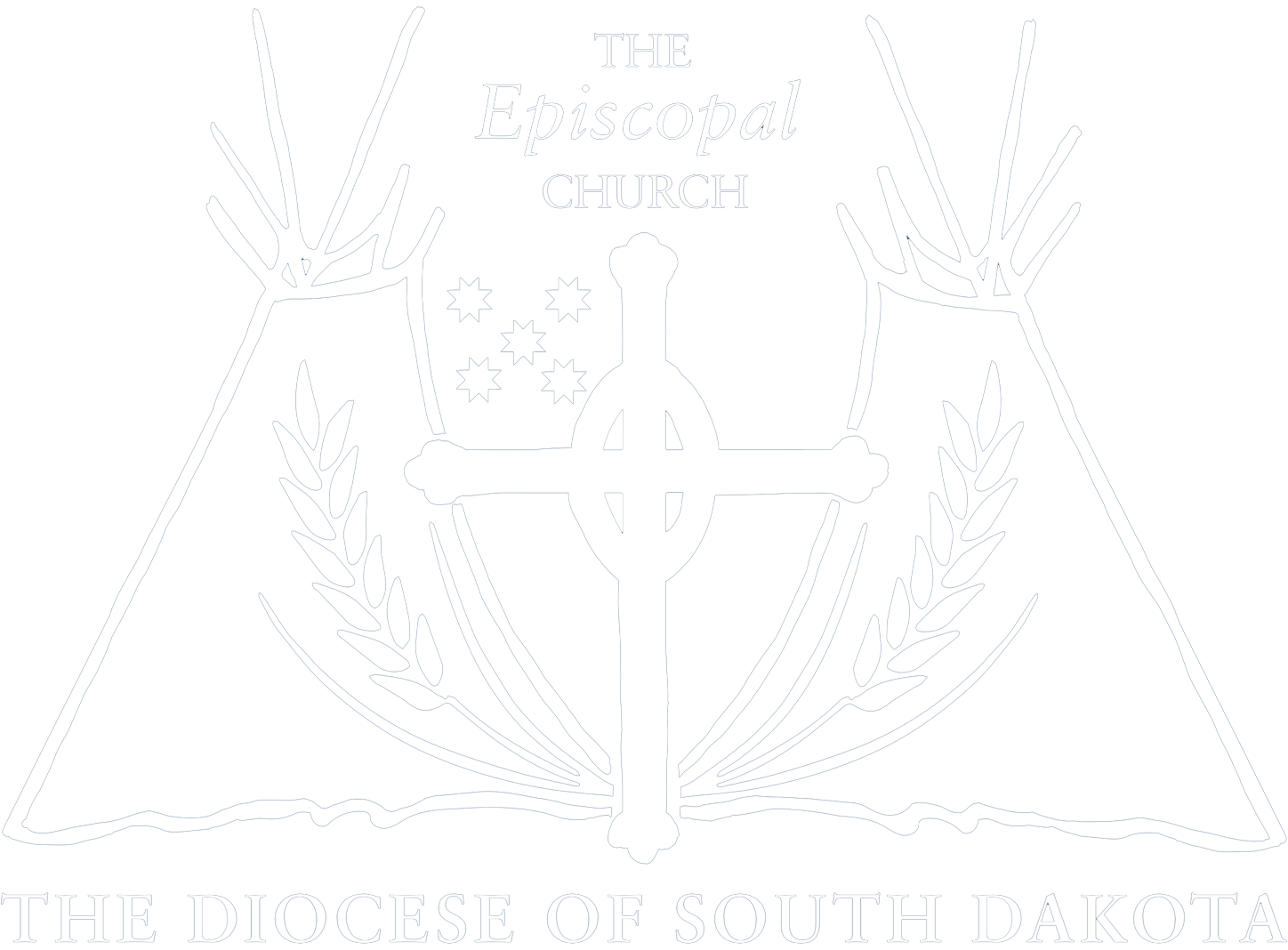In my first blog post for Church Anew, I laid out several critiques of the language of “stewards” and “stewardship” for describing what we do during fundraising season. In brief: stewardship narrows the church’s theology of money by reducing discipleship to managerial responsibility. Stewardship–coming out of colonialism, capitalism, and embraced by robber-barons like Rockefeller–is a highly individualistic, localist, and pro-wealth approach to money.
The “good steward” also sits uneasily alongside the New Testament’s portrayal of stewards (consider the Unjust Steward or the steward at the wedding in Cana). Its valuing of the prudent growth of wealth is disconnected from Jesus’ recurring call to give up wealth and his statement that one cannot serve God and wealth (Luke 16:13).
Finally, stewardship language risks obscuring the larger witness of Christ regarding money. Reinhold Niebuhr warned that stewardship is a naïve framework that excuses the exploitation of the rich provided they donate generously during the pledge drive.1
Niebuhr illustrated this with the striking example of a wealthy factory owner who exploits his workers. Stewardship, he points out, does nothing to challenge this businessman’s assumption that he has been placed in charge by God. In fact, it reinforces his self-image as a prudent manager of God’s resources based solely on his willingness to contribute to the church. I will return to this example toward the end of this post.
All that said, critiquing stewardship is the easy part. The harder task is finding new (or perhaps better said, ancient) ways of talking about money that more fully reflect the witness of scripture and the practices of the early church. That is the work I seek to begin here. I do not claim to have a single replacement ready, but I do want to sketch avenues rooted more closely in the language and practices of the earliest Christians.
Offering
The first and most immediate alternative is a deepening of the language of offering. This term is already embedded in the life of the church through the offertory–that central moment in the Sunday Eucharist when we bring forward gifts of bread, wine, and money. The language of offering is not just liturgically practical but theologically-rooted; it reconnects Christians to the temple traditions Jesus knew and to the sacrificial imagery that runs throughout the New Testament, and in my Episcopal tradition forms the basis of the offertory sentences in the Book of Common Prayer.
In addition, through my current book project exploring money in the final week of Jesus’ life, I have been struck by the theme of faithful offering against the backdrop of corruption. One of the most poignant examples is Mary of Bethany’s extravagant pouring out perfume worth a year’s wages on Jesus’ feet (John 12:1–8). Her offering, a version of which appears in all four Gospels, is set against Judas’ betrayal for thirty silver coins (Matthew 26:14–16). What does it mean to make a faithful offering of time, talent, and treasure in the midst of a corrupt world?
To reframe church giving as offering rather than stewardship is to connect our gifts to worship, gratitude, and sacrifice. Offering is a much more scripturally-rooted image for what we are doing, and in Jesus’ last week alone we see the extraordinary offerings of the widow’s mite (Mark 12:41–44), to Mary’s perfume, and Christ’s own self-offering on the cross.
Women’s Patronage
A second approach is to reclaim the role of patronage, especially as embodied by women in the early church. Lydia, the seller of purple cloth, is the most well-known example, but personally I find the most intriguing to be Phoebe, mentioned briefly in Romans 16:1-2. There Paul commends her both as a diakonos–a deacon of the church in Cenchreae–and as a prostatis, a benefactor or patron not only of many others but of Paul himself.
This combination is striking. On one hand, Phoebe is described as a deacon, a title of service. On the other, she is presented as a patron, a role in Roman society associated with wealth, influence, and public honor. Paul’s use of both terms suggests that early Christians were already grappling with how to integrate wealthier patrons into assemblies otherwise made up of the poor.2
Like many congregations, the church I serve is majority women. Highlighting women’s financial leadership is one way of encouraging faithful offerings in a new light. What if we looked again at women like Phoebe or Lydia of Thyatira (Acts 16:11–15) and allowed their examples (rather than the prudent steward) to frame our imagination as a church?
What if we looked again at women like Phoebe or Lydia of Thyatira (Acts 16:11–15) and allowed their examples (rather than the prudent steward) to frame our imagination as a church?
Koinonia: Economic Fellowship
A third possibility is to recover the language of koinonia–economic fellowship and sharing–as seen in the Jerusalem Collection. In 1 Corinthians, 2 Corinthians, Romans, and possibly Galatians, Paul devotes a great deal of attention to this international collection of money to support the mother church in Jerusalem during famine.3
Instead of stewardship, Paul’s language is that of grace (charis) and fellowship (koinonia). He describes how the Macedonians gave “beyond their means” for the privilege of sharing in this ministry to the saints (2 Corinthians 8:3–4). He urges the Corinthians to move toward a “fair balance” between their abundance and others’ need (2 Corinthians 8:13–14).
Koinonia is richer than its typical English translation of “fellowship.”4
It conveys bondedness, solidarity, and a shared economic life. David Bentley Hart has gone so far as to suggest that the early churches were essentially a network of small communes, bound together in mutual care – surely an image more fitting for dioceses and denominational bodies.5
Reframing giving in terms of koinonia calls us beyond the individualism and localism of congregational stewardship and reconnects us to ancient models of economic fellowship.
Tithing as Spiritual Practice
Finally, I must acknowledge the tithe. Historically speaking, the Christian tithe as we know it–the setting aside of a scriptural tenth of produce or income–was a tenth-century development tied to the parish system in medieval Europe. At that time, the biblical tithe was dusted off as justification for what was essentially an ecclesiastical tax.6
And yet, despite its later origins, the tithe has become a meaningful spiritual practice for many, including myself. Slowly, over time, I’ve gradually embraced giving ten percent of my income as a spiritual discipline, a regular way of expressing trust in God’s provision and of committing to a simpler life. Moreover, recent conversations about a “modern tithe”--giving five percent to one’s congregation and five percent to nonprofits fulfilling God’s mission–open fresh possibilities for generosity that is both rooted in church life and recognizes the good work taking place beyond the parish.7
So even while recognizing its historical limitations, I would not want to discard the tithe entirely. It can remain an important spiritual practice for those who choose it and I believe this is worth highlighting at least annually.
While none of these are perfect, offering, patronage, koinonia, and even tithing point us in helpful directions. Yet as I reflect, I believe that whatever language we use, we need to somehow convey that we are not called to be managers but servants, and that there is a profound cost to discipleship.
Dietrich Bonhoeffer famously warned of “cheap grace” of Christianity stripped of sacrifice. His insistence that true, transformative discipleship is costly is rooted in scripture. In Paul’s reflections on the Jerusalem Collection, we hear echoes of this cost: Christ, though rich, became poor for our sake (2 Corinthians 8:9). In Acts, we hear of believers selling possessions and holding all things in common (Acts 2:44–45).8
To speak of the cost of discipleship during fundraising is to underscore that God desires the transformation of our whole lives. Returning to Niebuhr’s businessman, this is precisely what is missing if he believes that only writing a check is enough. He must consider the sources of his wealth and his exploitative labor practices, possibly giving up this role in order to follow Christ. He is called to die to a vision of himself as God’s faithful manager, trusting that, like that grain of wheat falling to the earth, this death will bear much fruit.
I recognize that I am not offering a single neat or easy alternative, and I am well aware of how deeply ingrained stewardship is in the mainline church (some even consider stewardship the North America’s most important contribution to global Christianity).9
It will take years of exploration and experimentation to move beyond it. What matters is that we keep seeking language and practices that draw us closer to the witness of the Gospels.
1 Reinhold Niebuhr. “Is Stewardship Ethical?” The Christian Century, vol. 47, 30 Apr. 1930, p. 555.
2 I explore Phoebe as deacon and patron in much greater depth in my book, The Unjust Steward. See Miguel Escobar, The Unjust Steward: Wealth, Poverty, and the Church Today, Forward Movement, 2022. Kindle ed., pp. 122–127.
3 Ibid., pp. 138-149.
4 Ogereau, Julien M. “The Jerusalem Collection as Koinōnia.” New Testament Studies, vol. 58, no. 3, 2012, pp. 360–378.
5 David Bentley Hart, "Are Christians Supposed to be Communists?" The New York Times, November 4, 2017.
6 See page 369 of MacCulloch, Diarmaid. Christianity: The First Three Thousand Years. Viking, 2010.
7 Sekula, Robyn Davis. “Stewardship Calls for a Modern View of Tithing.” Presbyterian Church (U.S.A.), 13 Mar. 2019, pcusa.org/news-storytelling/news/2019/3/13/stewardship-calls-modern-view-tithing.
8 Bonhoeffer, Dietrich. The Cost of Discipleship. Translated by R. H. Fuller, Simon & Schuster, 1995. See also commentary on Matthew 14:25-35 in Muddiman, John, and John Barton. The Gospels. Oxford Bible Commentary, OUP Oxford, 2001. Kindle ed., pp. 167–168.
9 See Brendan Barnicle’s tracing of the history of modern stewardship in Barnicle, Brendan J. Talking Dollars and Sense: Leading Theological Discussions on Money. Church Publishing Incorporated, 2003. Kindle ed., p. 57. See also Reumann, Stewardship & the Economy of God, 52.

